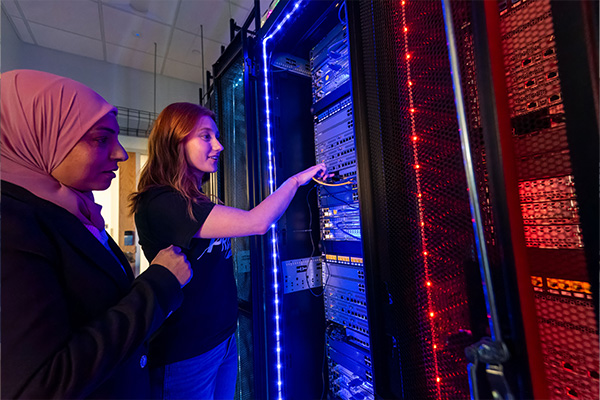Ethical Hacking Graduate Certificate
Program Quick Facts
Credits
9
Start Terms
Fall
|Spring
|Summer
Available
On Campus
|Online
Tuition
$5,397.75
estimated total cost
One step ahead
Industries throughout the world have information they need kept secure. With a certificate in ethical hacking, you can detect the flaws in security systems before hackers do.
Throughout this program, you have access to high-tech equipment and forward-thinking research. Step into the future, as you take a step into our homegrown virtual lab. Identify common security tools, features, and purposes. Perform realistic penetration tests, and harbor technical skills that allow advancement in the field of security assessment. Curriculum includes courses in network hacking, security management risks, and more.
Benefits
In this certificate program, you’ll be learning from nationally recognized faculty and using cutting-edge research and equipment. And nearly all of the courses use our homegrown virtual lab that provides the same learning experience for both on-campus and online students.
Prerequisites to Ethical Hacking Certificate
Students should have at least a bachelor’s degree in mathematics, computer science, engineering or information security (or similar program). Students are required to have a basic knowledge of a C type programming language or other OOP (Object-Oriented Programming) language. Knowledge of Python and SQL (Structed Query Language) skills will be very helpful. Students should also be familiar with both Windows and Linux operating systems.


